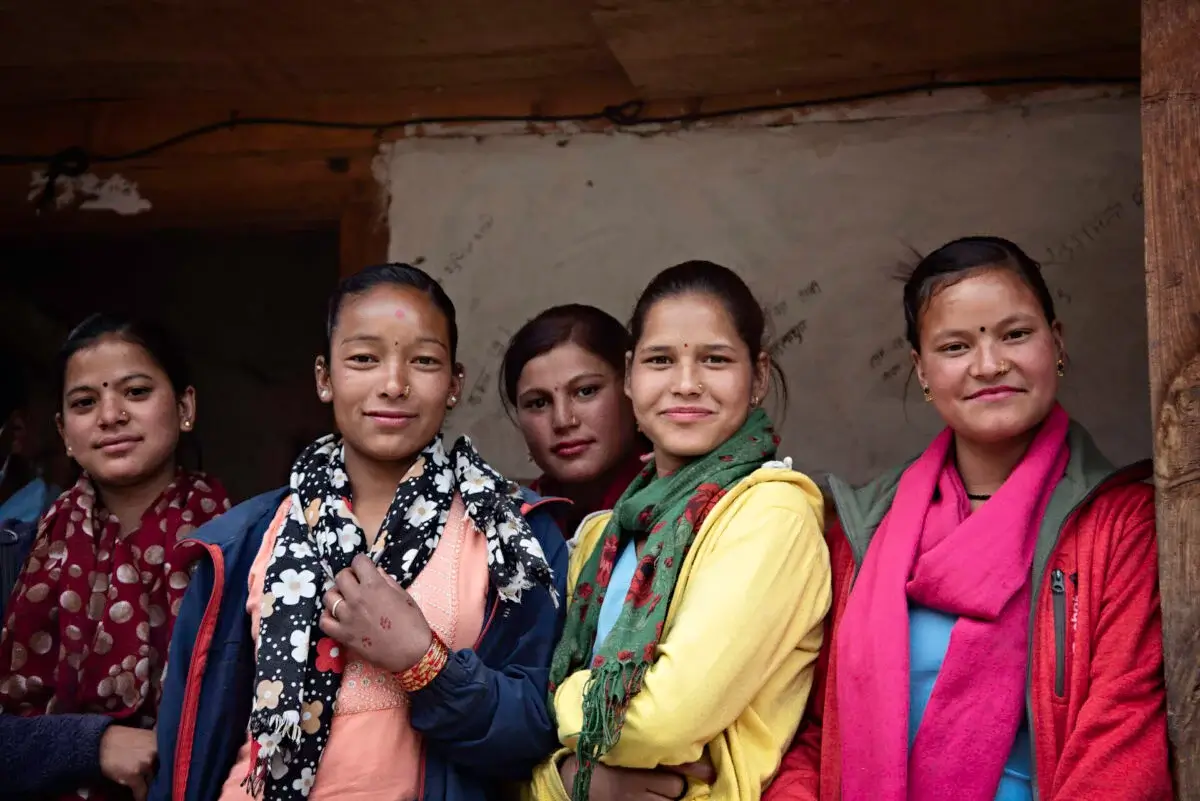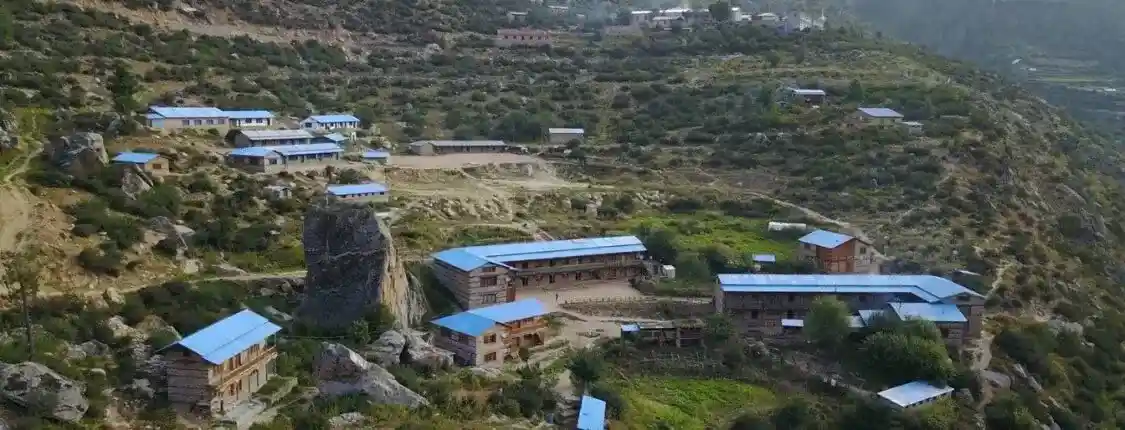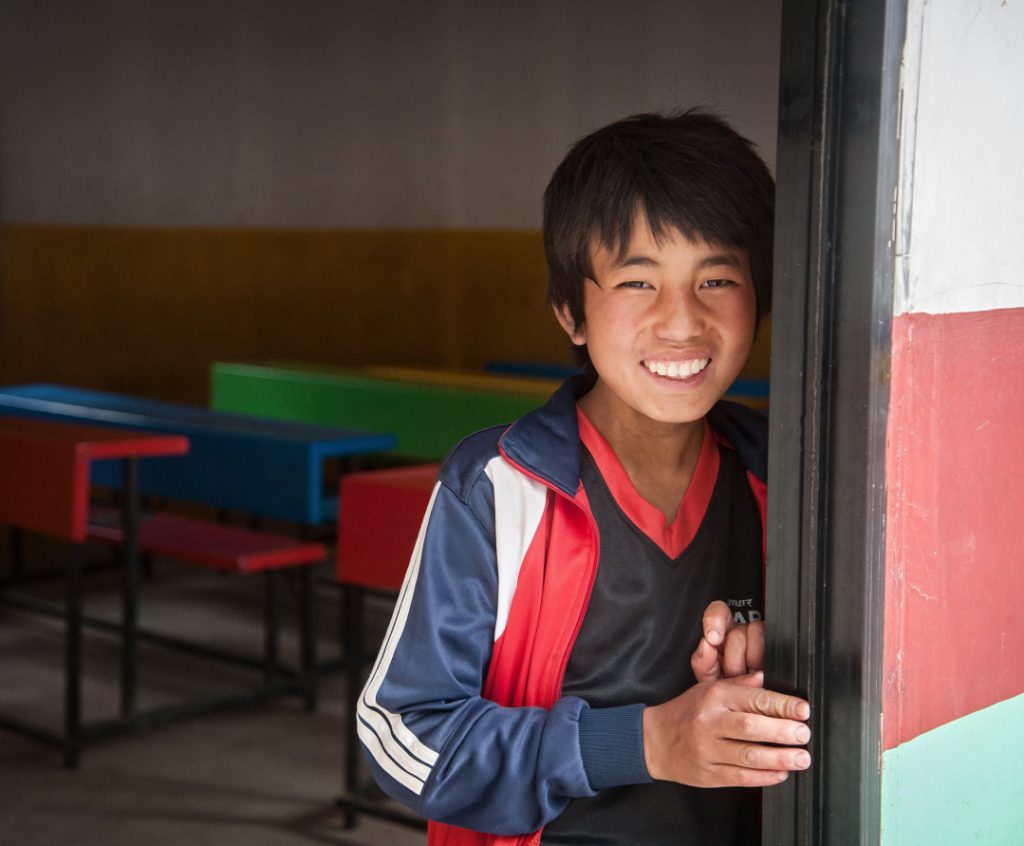Anyone who has ever worked with young people will know that a strong sense of self is a crucial part of youth development. It’s important that they feel recognised and supported in their identity.
In our work with young people from remote Humla, Nepal, we’ve heard concerns from youth who feel their identity isn’t being recognised. Decchen is one of these people. She says being a young person in Humla is difficult, with many adolescents unsure where they fit into the wider community in Nepal.
“It’s very challenging,” Decchen says. “Most youths are not sure of their identity. They feel uncertain in their future.”
Sadly, this is not a new issue. Humli people have a long history of feeling their identity and culture has not been recognised. Nepal is diverse, multi-ethic and multi-cultural. However, many of these people are grouped (both legally and socially), despite having their own unique languages, religions, cultures, social norms and values. This is for multitude of reasons including globalisation and westernisation.
To help address this, we’ve formed a group of young girls from Humla to understand their needs and support them to create change. We do this by helping them build the skills to advocate for themselves and for the overall issues faced by Humli people.

Our Youth Projects Coordinator, Pema Ramla, is leading this group. A Humli women herself, she understands the challenges these young people face.
“The people of Humla, especially youth, face so many challenges surrounding lack of recognition of their identity,” Pema says. “Being a Humli, I have seen the struggle and challenges faced and I am passionate about working to change this issue. Adara has supported us to form a group of motivated and independent young girls from Humla. We encourage them to raise the issues they are facing and are working with them to workshop solutions.”
So what needs to be done to change this? Decchen says the first step is recognition by the government to distinguish Humlis as their own indigenous people.
“We need to be enlisted as one of indigenous tribes of Nepal. This official recognition would also clear the self-misidentification of youth, who have often been raised in Tibetan schools and subsequently identify as Tibetans,” Decchen says. “This misidentification has led many Humli youth to feel inferior and to be distant from their community and traditions. We have our own unique and rich culture which represents a part of Nepal. The government needs to acknowledge it and preserve this group of people and our identity.”
Decchen says another step in the solution is keeping young people in Humla in the first place.

“Youths are encouraged to move abroad and participate in laborious jobs to earn a living rather than pursue higher education unless a scholarship is available,” says Decchen. “Many live overseas and those who stay feel less valued than their peers abroad.”
While moving away may benefit families in the short-term, it does not sustainably improve the wellbeing of the wider population.
“Although the communities may be financially better off, there will be a lack of qualified human resources in the overall community, which is vital for the community to prosper moving forward,” Decchen says. “Hope for the future of Humla youth lies in increased access to education, opportunities, and the preservation of our unique culture.
“By providing better resources for youth to stay in Humla, they can build a better future for themselves and their communities in Humla and contribute to the country too.”
This falls into our broader AdaraRemote work, particularly the youth development component. For many years, we have run programmes with a focus on protecting, supporting and nurturing youth. We elevate the voices of young people, so they have opportunities to influence policy, programme development and service delivery in areas that affect their lives. We do this by connecting them to networks and events and providing opportunities to develop their skills.
AdaraRemote also works to improve education, health and employment opportunities, which in turn encourages residents to remain in Humla, benefitting the entire community.
This is only the beginning of this important work with youth to ensure they’re recognised and we know there is a long way to go. But by working together, we can address these issues and positively impact the people of Humla.
“Supporting youth to address the issue of their identity is not a small deal and it will be a significant achievement for the people of Humla,” Pema says. “It would change their history and improve their futures”.

